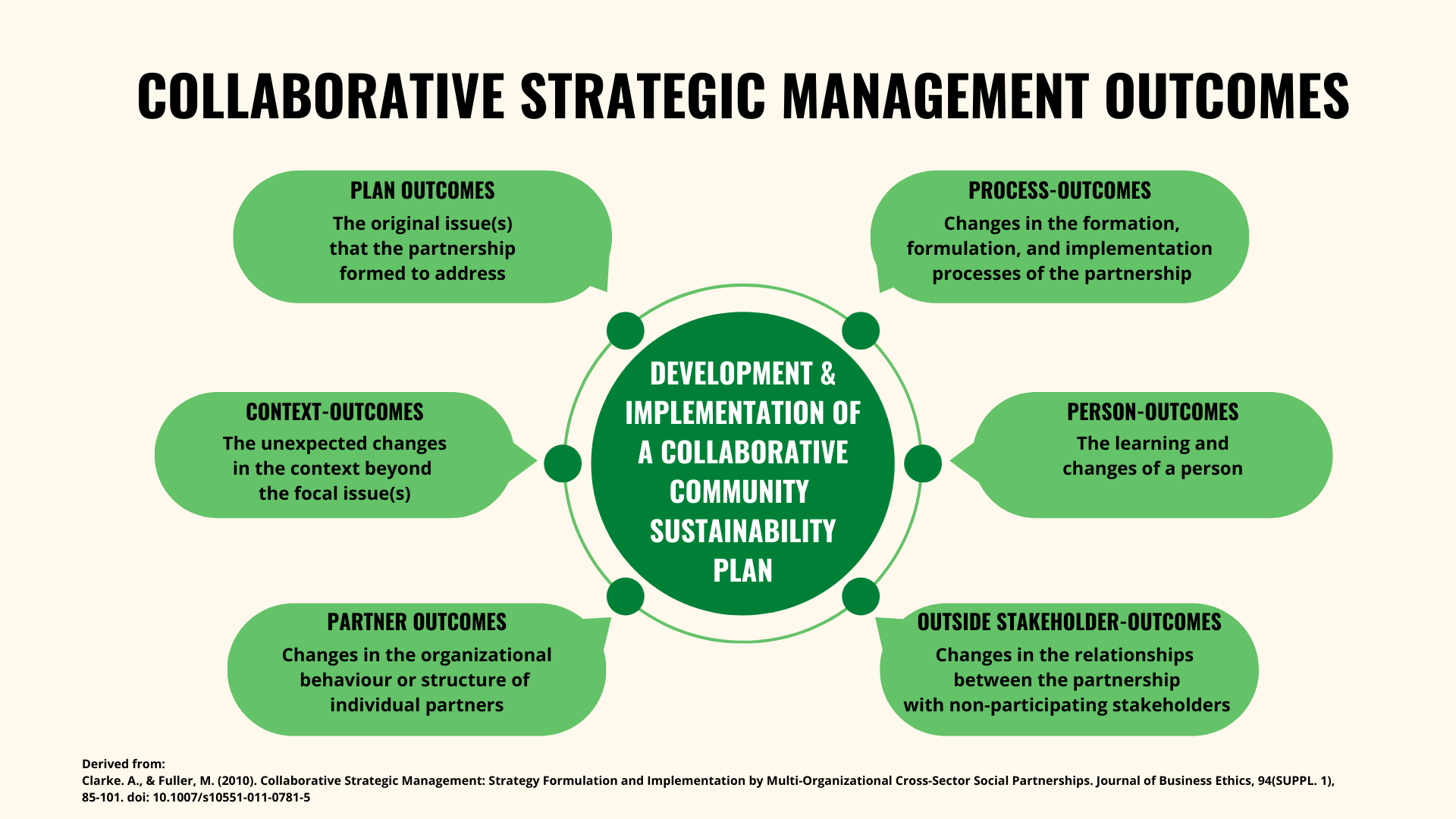During the collaborative strategic management process, outcomes are realized. The outcomes are the results of the actions taken by both the partnership, and by the individual partner organizations. Outcomes can be categorized into the following six types.
- Plan-outcomes relate to the original issues that the partnership formed to address (i.e. are set out in the goals of the plan).
- Process-outcomes lead to adaptations and changes to the partnership formation, plan creation, and implementation processes.
- Partner-outcomes relate to changes in the organizational behavior or structure of individual partners.
- Outside stakeholder-outcomes involve changes in the relationships between the partnership (and/or the individual partners) with non-participating stakeholders.
- Person-outcomes relate to the learning and changes of a person.
- Context-outcomes relate to the political, economic, social, technical, ecological, and/or legal environments; the context beyond focal issue(s) of the collaboration.
The below graphic provides a summary of this content.

This content has been derived from:
Clarke, A., & Fuller, M. (2010) Collaborative Strategic Management: Strategy Formulation and Implementation by Multi-Organizational Cross-Sector Social Partnerships. Journal of Business Ethics, 94(Supplement 1): 85-101. DOI: 10.1007/s10551-011-0781-5 (View pre-publication version)